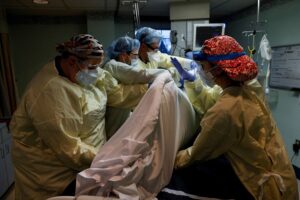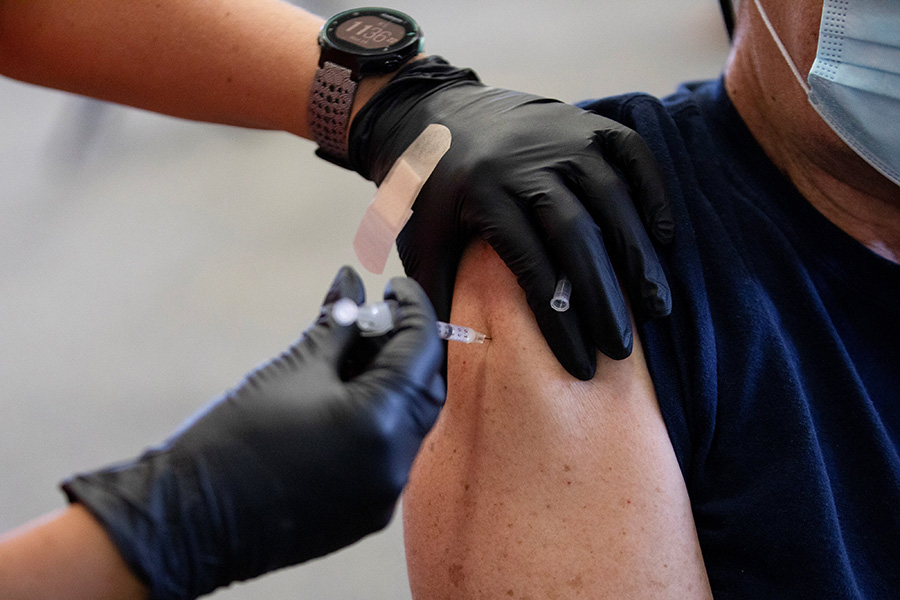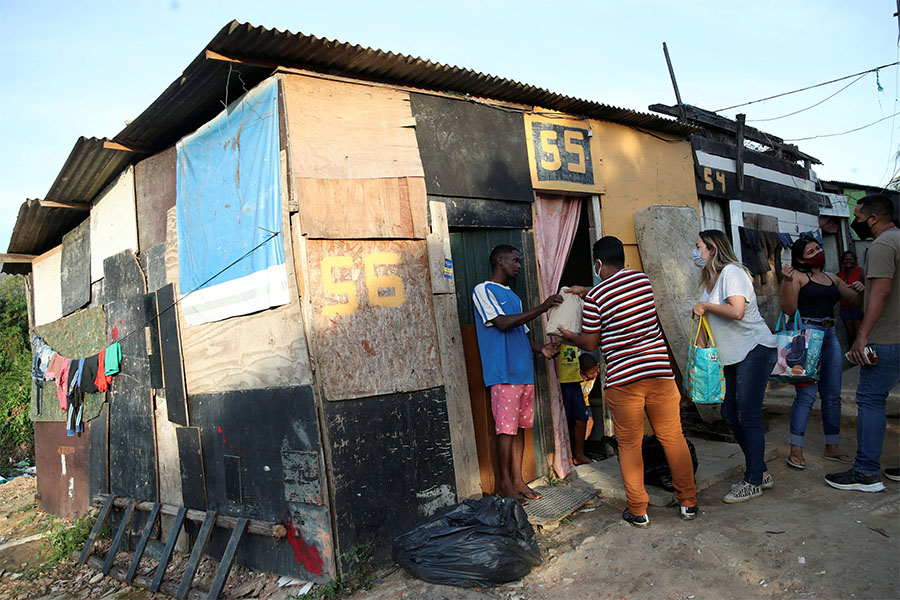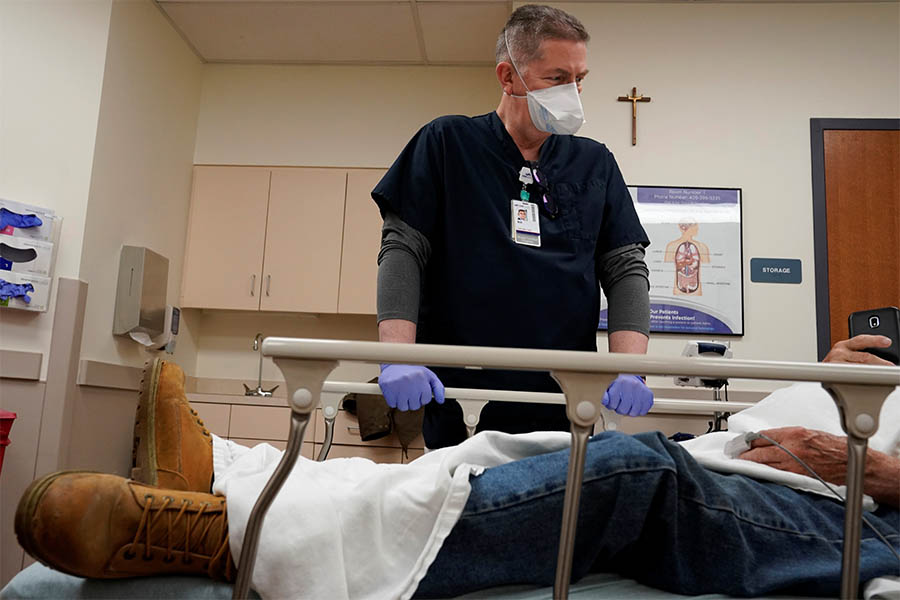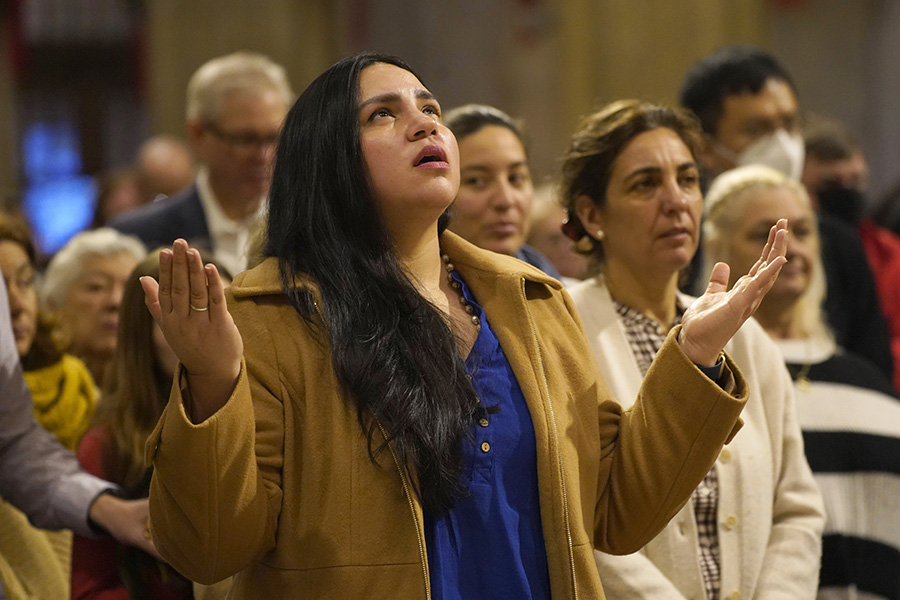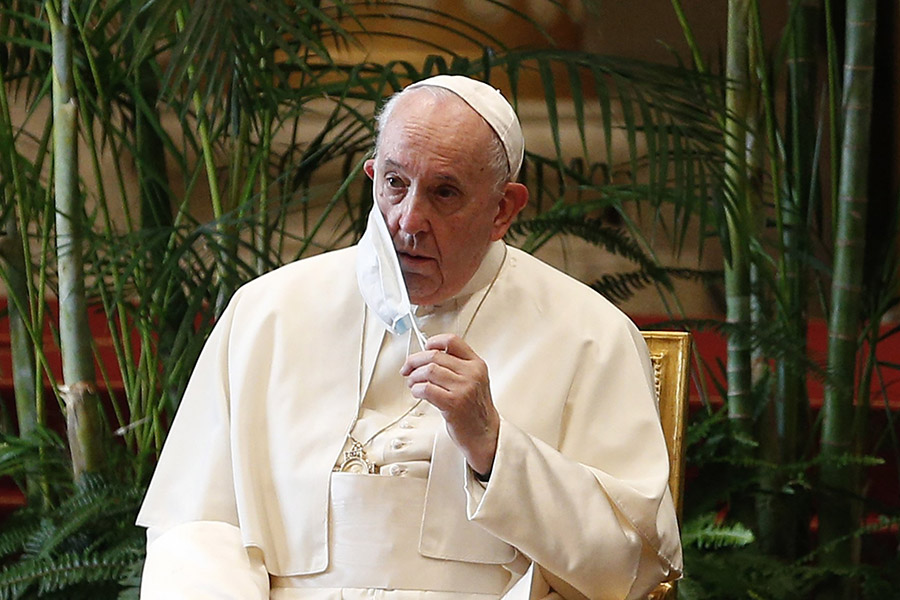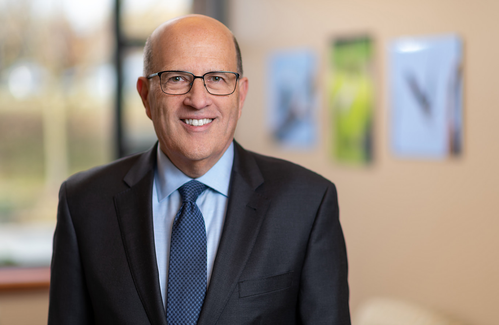
Catholic hospitals in the Archdiocese of Baltimore are being hit by medical and clinical staffing shortages and other challenges as the surge in COVID-19 cases continues filling emergency rooms throughout the state and around the country.
Since late November, a surge in COVID-19 omicron variant cases has caused a quarter of Maryland’s hospitals to transition from a “contingency” to a “crisis” standard of care.
“Crisis of standard care” is when resources of hospital care are scarce and the focus changes from delivering individual patient care to delivering the best care for the patient population, according to the Maryland Hospitals Association.
University of Maryland St. Joseph Medical Center in Towson and Mercy Medical Center in Baltimore are among those hospitals that have moved into a “crisis standard of care.”
According to Bob Atlas, president and CEO of the Maryland Hospital Association, as of Jan. 3, hospitals in Maryland surpassed caring for 3,100 COVID-19 patients.
“We’ve got the highest percentage of COVID-19 patients that we’ve had at any time since the beginning of the pandemic,” he said.
At least 80 percent of the COVID-19 patients in the hospitals are unvaccinated or not fully vaccinated, Atlas said. He noted that Maryland is facing the steepest increase of infections since the start of the pandemic.
The MHA launched a “Sound the Alarm” campaign Dec. 20, 2021, in which patients are encouraged to know where to go to receive medical care.
Patients with regular medical conditions should seek medical care from their primary care physician or telehealth visits. Patients should go to the hospital only in case of emergency and life-threatening conditions.

According to Atlas, many patients are seeking COVID-19 testing at the hospitals instead of going to testing sites, which slows down care for patients in true need of hospital care.
“Ascension St. Agnes and our amazing doctors, nurses and other healthcare professionals will continue to care for everyone who needs it,” according to a statement from Ascension St. Agnes in Baltimore. “Taking these simple steps and knowing where to go for your healthcare needs will help make sure we can help the sickest patients right away.”
Ascension St. Agnes promotes the protocols of the campaign to its patients and emphasizes the importance of patients protecting themselves and others by doing the simple and practical actions known to limit the spread of this contagious disease such as wearing a mask, washing hands and getting vaccinated and/or boosted, if eligible.
Gail Cunningham, senior vice president of medical affairs and chief medical officer at University of Maryland St. Joseph Medical Center, said the hospital is taking numerous patients – forcing nonurgent operating room procedures to be canceled and rescheduled.
“Our physical spaces in the waiting rooms are overcrowded, which is just creating more problems with contagiousness,” she said.
She said St. Joseph Medical Center’s emergency room numbers are up by about 50 percent while some emergency departments are up by 100 percent.
“We should expect to be at a peak for about 30 days to 45 days,” she added.
The strain on staff and material resources has forced St Joseph Medical Center to encourage innovation. The hospital created a discharge lounge for people who might be ready to leave the hospital but are waiting for a ride.
“Leaders are out on the floors, trying to break down barriers and provide solutions to challenges that they might be facing and thanking (staff) for hanging in there and continuing to live our mission,” she said.
Cunningham noted that the whole healthcare system is extremely strained.
“We have to prioritize taking care of the sickest first and triage appropriately,” she said, adding that the clinical and medical staff could use prayers.
Email Priscila González de Doran at pdoran@CatholicReview.org
Also see
Copyright © 2022 Catholic Review Media
